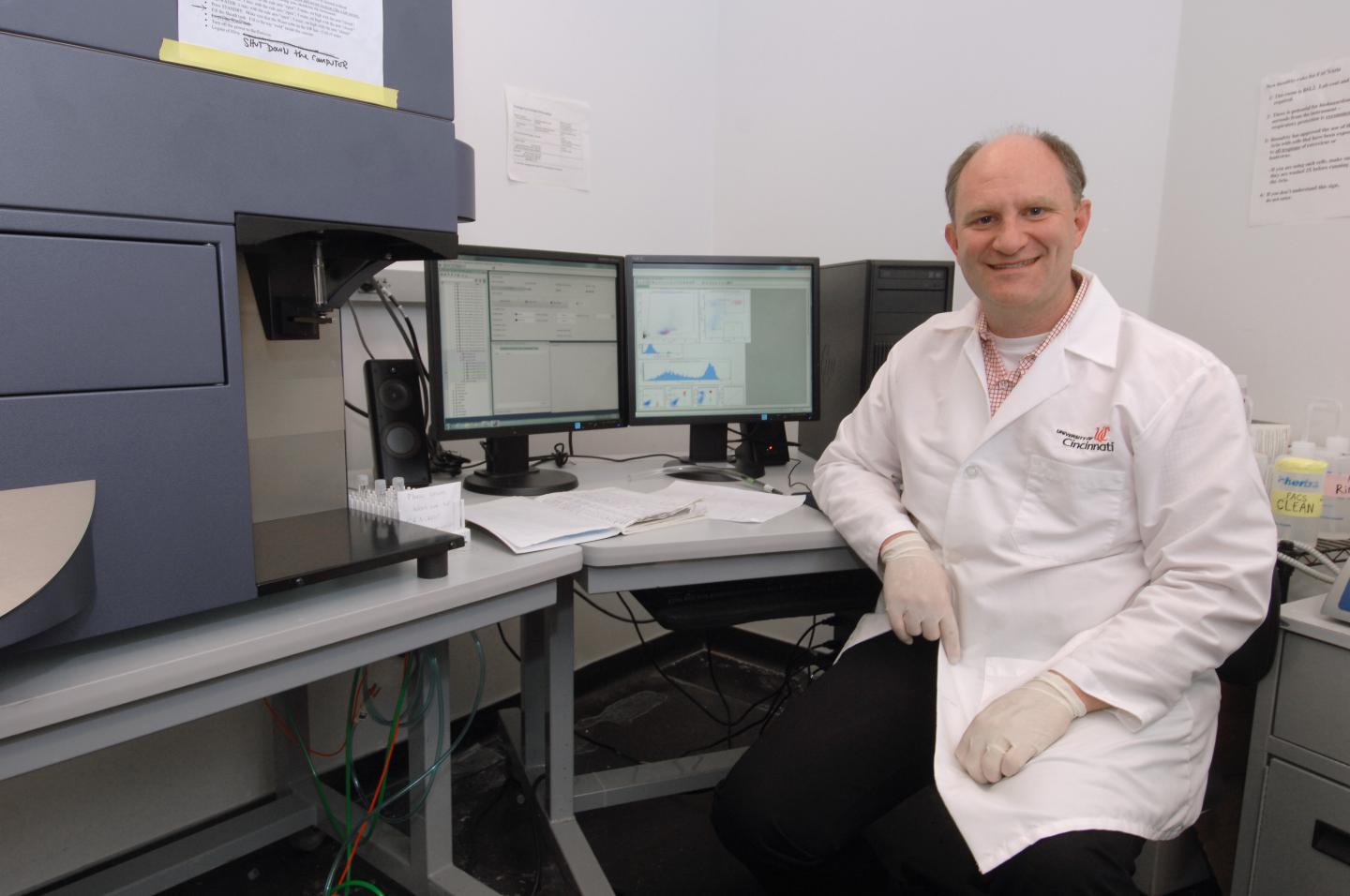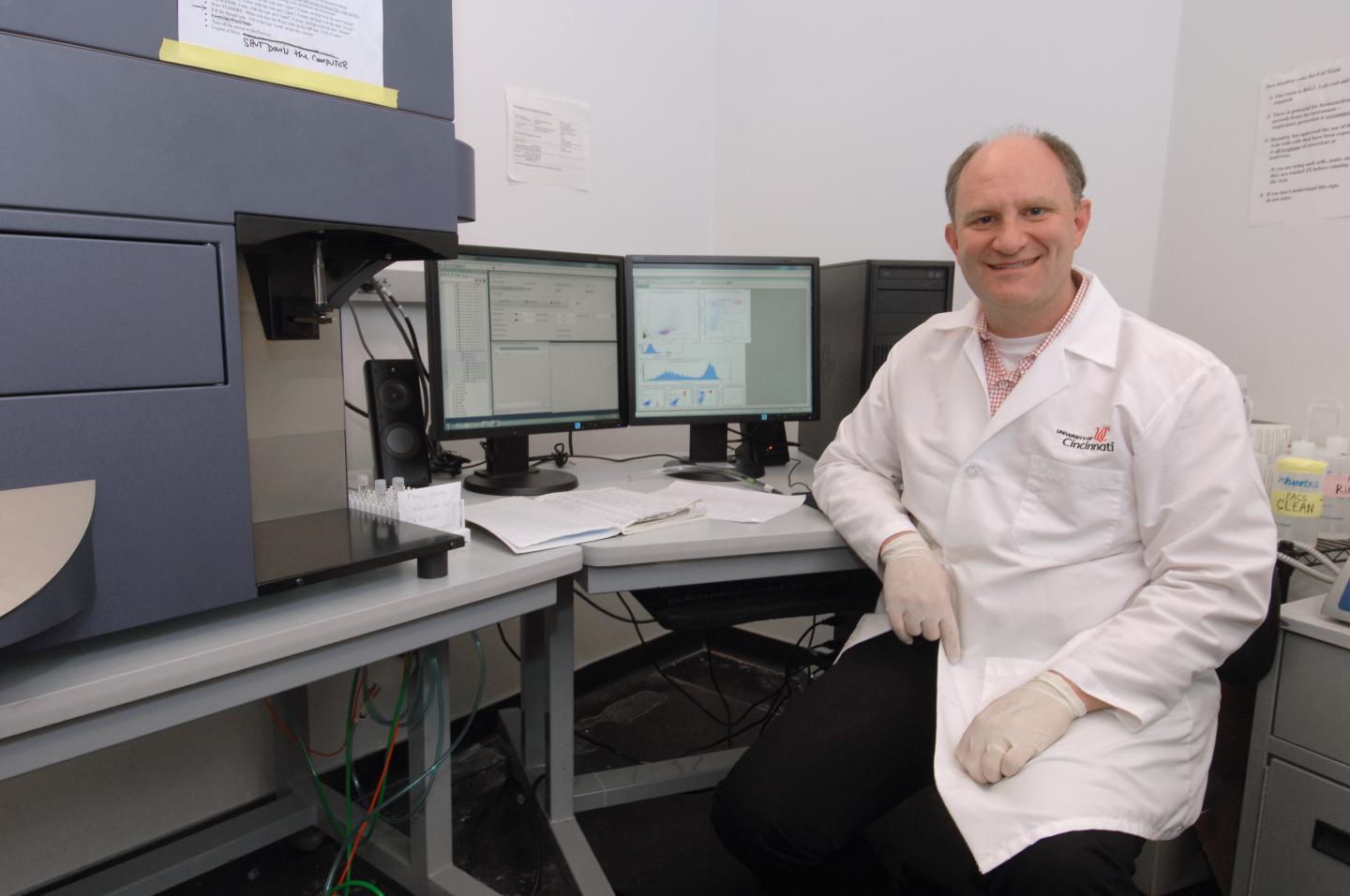
Credit: University of Cincinnati
CINCINNATI–Researchers at the University of Cincinnati (UC) College of Medicine have discovered a new potential strategy to personalize therapy for brain and blood cancers.
These findings are reported in the Feb. 28 edition of Cell Reports.
"We found a new combination of therapeutics that could treat cancers that lack a protein called PTEN. PTEN is an important tumor suppressor, which means that it stops cell growth and division according to the needs of the body," says David Plas, PhD, Anna and Harold W. Huffman Endowed Chair for Glioblastoma Experimental Therapeutics. Plas is an associate professor in the Department of Cancer Biology, a member of the University of Cincinnati Cancer Institute and a researcher in the Brain Tumor Center of the UC Gardner Neuroscience Institute. Atsuo Sasaki, PhD, and Hala Elnakat Thomas, PhD, both in the Division of Hematology Oncology at the UC College of Medicine, were collaborators on the study.
In early work using experimental therapeutics in human cancer cells and in tumor models, the Plas laboratory showed that stopping the production and function of the protein S6K1 could eliminate PTEN-deficient glioblastoma cells. Glioblastoma, the most aggressive form of brain cancer, is difficult to treat with targeted therapeutics.
"We used support from the Huffman Foundation to conduct a sophisticated biochemical analysis of how cells respond to S6K1 targeting," Plas says. "Combining the biochemical results with computational analysis gave us the insight that we needed–there are targets in addition to S6K1 that can be hit to trigger the elimination of PTEN-deficient cancer cells."
With the new information, the research team tested pharmaceutical-grade drug combinations for the ability to eliminate PTEN-deficient cancer cells. Results showed that the drugs LY-2779964 and BMS-777607 work together to specifically eliminate PTEN-deficient cells. "This is a completely new combination of targets in oncology," Plas says. "We have great hope that our new data will lead academic and industry researchers to investigate S6K1 as the center of new combination strategies for cancers of the brain, blood and other tissues."
Future work in the project will test the safety and efficacy of the new combination using tumor models, with the goal of preparing the combination strategy for clinical trial.
Ronald Warnick, MD, medical director of the UC Brain Tumor Center and a professor in the Department of Neurosurgery within the UC College of Medicine, adds that this kind of project is necessary in finding new and beneficial therapies for brain tumors.
"There is a desperate need for novel therapeutic agents for patients with glioblastoma," he says. "This combination of drugs has the potential to become a game-changer."
###
This study was funded by the American Cancer Society, the National Institutes of Health (R01 CA133164, R01 CA168815, R21NS100077, R01NS089815), the UC Brain Tumor Center, the Anna and Harold W. Huffman Endowed Chair for Glioblastoma Experimental Therapeutics and the UC Medical Scientist Training Program. Plas cites no conflict of interest.
Media Contact
Katie Pence
[email protected]
513-558-4561
@UCHealthNews
http://www.healthnews.uc.edu
############
Story Source: Materials provided by Scienmag





